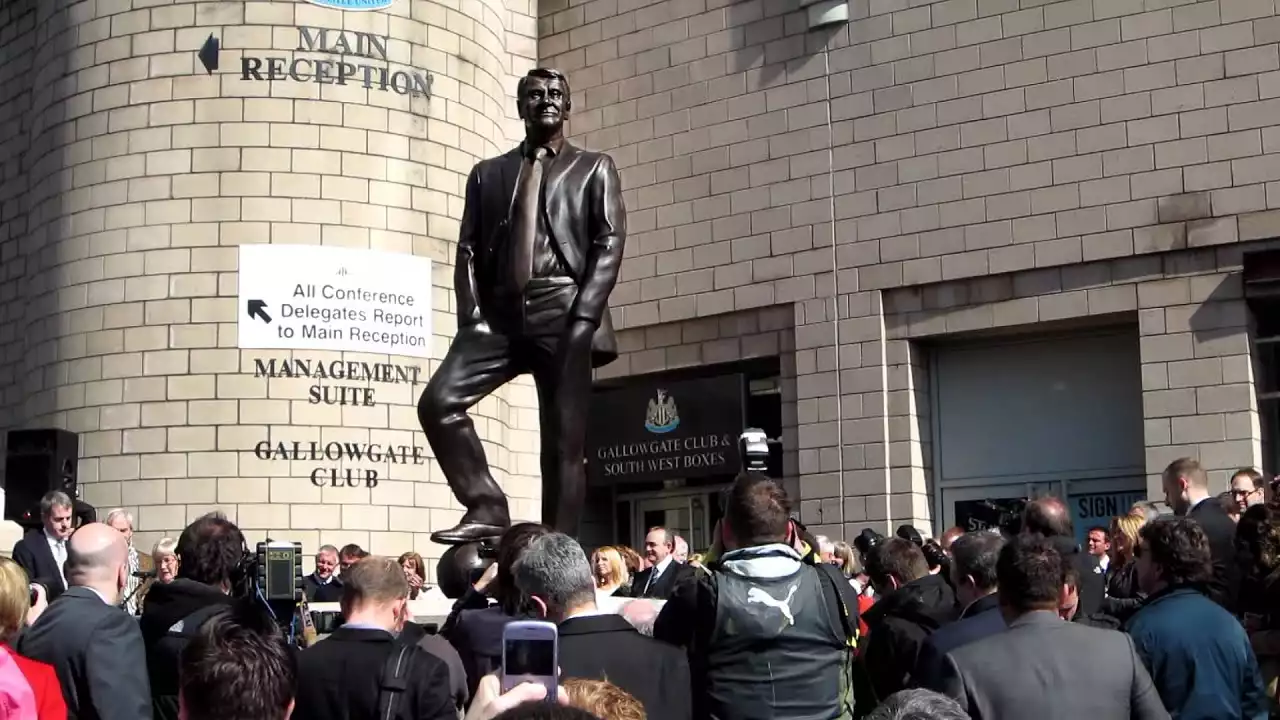The Early Years of the EFL Championship
The EFL Championship, formerly known as the Football League First Division, has a rich history dating back to its inception in 1888. The league was originally formed to provide a platform for the top professional football clubs in England to compete against each other on a regular basis. Over the years, the EFL Championship has seen many clubs rise through the ranks, while others have struggled to maintain their status. These early years laid the foundation for what would become one of the most competitive and unpredictable leagues in the world.
In the early years of the EFL Championship, clubs like Aston Villa, Nottingham Forest, and Leeds United emerged as dominant forces. These clubs had a strong fan base and were able to attract top-quality players, leading to their success on the field. Aston Villa, in particular, enjoyed a period of sustained success, winning the league title seven times between 1893 and 1910. Their rise to prominence was a result of a strong team spirit, excellent coaching, and astute player recruitment.
However, not all clubs experienced the same level of success. Some struggled to find their footing in the league and faced constant battles against relegation. These clubs often lacked financial backing and had to rely on the resilience and determination of their players to survive. Despite their struggles, these underdogs became fan favorites and showcased the true spirit of the EFL Championship.
Prominent Clubs and Their Rise to Success
As the years went by, several clubs emerged as powerhouse teams in the EFL Championship. These clubs had a combination of talented players, ambitious managers, and strong financial backing, which allowed them to dominate the league and secure promotion to the Premier League. One such club is Leicester City, who rose from the depths of the Championship to win the Premier League title in the 2015-2016 season, defying all expectations. Their success story serves as an inspiration to clubs striving for greatness in the league.
Leicester City's triumph was not an isolated incident. Other clubs such as Wolverhampton Wanderers and Norwich City have also experienced similar rises to prominence. Wolverhampton Wanderers, under the ownership of Fosun International, invested heavily in the squad and secured promotion to the Premier League in the 2017-2018 season. Norwich City, on the other hand, relied on a blend of youth development and shrewd signings to secure promotion in the 2018-2019 season.
The rise of these clubs demonstrates the importance of a clear vision, strong leadership, and strategic planning. It also highlights the competitive nature of the EFL Championship, where even the underdogs have a chance to make history and achieve greatness.
Factors Contributing to the Fall of EFL Championship Clubs
While some clubs have experienced meteoric rises to success, others have faced the harsh reality of relegation and financial turmoil. Several factors contribute to the fall of EFL Championship clubs, including mismanagement, unsustainable spending, and a lack of long-term planning.
One of the major reasons for the downfall of EFL Championship clubs is the financial challenges they face. Unlike their counterparts in the Premier League, Championship clubs have limited revenue streams and often struggle to generate enough income to cover their expenses. This puts them at a significant disadvantage when it comes to competing for top players and investing in infrastructure.
Another factor that contributes to the fall of EFL Championship clubs is the constant managerial changes. Clubs often find themselves in a cycle of hiring and firing managers in an attempt to find the right formula for success. This instability can disrupt the team's progress and lead to a decline in performance on the field.
Additionally, the role of player transfers cannot be ignored in the rise and fall of clubs. Championship clubs often rely on player sales as a means of generating revenue. However, this can result in a loss of key players and disrupt team chemistry, leading to a decline in performance. On the other hand, the successful acquisition of talented players can provide a much-needed boost to a club's fortunes.
Financial Challenges Faced by EFL Championship Clubs
Financial challenges are a constant struggle for EFL Championship clubs. Unlike their counterparts in the Premier League, Championship clubs have limited revenue streams and face a constant battle to balance the books. This can result in a lack of investment in the squad and infrastructure, making it difficult to compete at the highest level.
One of the major financial challenges faced by Championship clubs is the lack of TV revenue. While Premier League clubs benefit from lucrative broadcasting deals, Championship clubs have a smaller share of the pie. This puts them at a significant disadvantage when it comes to competing for top players and keeping up with the financial demands of the modern game.
Another financial challenge faced by Championship clubs is the high cost of player wages. While clubs strive to attract talented players to improve their chances of success, this often comes at a high cost. The pressure to offer competitive wages can lead to financial instability and put the long-term future of the club at risk.
Additionally, the lack of matchday revenue has a significant impact on the financial health of EFL Championship clubs. With smaller stadiums and lower attendance figures compared to Premier League clubs, Championship clubs struggle to generate income from ticket sales and hospitality. This puts them at a disadvantage when it comes to competing with clubs in the top flight.
Despite these challenges, Championship clubs continue to find innovative ways to generate revenue, such as sponsorship deals and commercial partnerships. However, the financial landscape remains a constant battle, and clubs must navigate these challenges carefully to ensure their long-term survival.
Managerial Changes and Their Impact on Club Performance
Managerial changes are a common occurrence in the world of football, and EFL Championship clubs are no exception. The appointment of a new manager can have a significant impact on club performance, both in the short term and the long term.
A change in manager often brings fresh ideas and a new approach to the team. This can rejuvenate players and provide a much-needed boost to morale. However, a change in management can also disrupt team chemistry and take time for the players to adapt to a new system and playing style.
In some cases, managerial changes have proven to be a catalyst for success. Clubs like Brentford and Swansea City have experienced significant improvements in their performance after appointing new managers who brought a fresh perspective to the team. These managers implemented new tactics, motivated the players, and instilled a winning mentality within the squad.
On the other hand, frequent managerial changes can create a sense of instability and hinder the team's progress. It takes time for players to build a rapport with the manager and understand their expectations. Constant changes in management can disrupt this process and lead to inconsistent performances on the field.
The Role of Player Transfers in the Rise and Fall of Clubs
Player transfers play a crucial role in the rise and fall of EFL Championship clubs. The acquisition or sale of key players can have a significant impact on a club's fortunes, both on and off the field.
Successful player acquisitions can provide a much-needed boost to a club's chances of success. A talented player can make a significant difference to a team's performance, providing the creativity, leadership, or goalscoring prowess needed to win matches. Clubs that are able to identify and secure top-quality players often find themselves in a strong position to compete for promotion.
On the other hand, the loss of key players through transfers can have a detrimental effect on a club's fortunes. The departure of a star player can disrupt team chemistry and leave a void that is difficult to fill. This can result in a decline in performance and ultimately lead to relegation or a loss of form.
Additionally, financial considerations often play a significant role in player transfers. Championship clubs, especially those facing financial challenges, may be forced to sell their best players to generate much-needed revenue. This can weaken the squad and make it difficult to compete against clubs with more financial resources.
The Influence of Fan Support on EFL Championship Clubs
Fan support is an integral part of the EFL Championship and plays a crucial role in the success and survival of clubs. The passionate and unwavering support of fans can provide a boost to players on the field and create a positive atmosphere in the stadium.
The presence of a passionate fan base can make a significant difference in the performance of a team. The energy and enthusiasm generated by the fans can motivate players to give their all on the field and push them to achieve remarkable feats. This support can be particularly valuable during difficult times when the team is facing relegation or financial challenges.
Furthermore, fan support extends beyond match attendance. In the digital age, fans have a powerful voice on social media platforms and can influence public opinion about the club. A strong and engaged fan base can attract sponsors and investors, providing the club with much-needed financial stability.
However, the absence of fan support can also have a detrimental effect on club performance. Playing in empty stadiums or in front of apathetic crowds can demotivate players and create a negative atmosphere. This can lead to a decline in performance and make it difficult for clubs to attract top-quality players.
Lessons Learned from the Rise and Fall of EFL Championship Clubs
The rise and fall of EFL Championship clubs offer valuable lessons for both aspiring clubs and established powerhouses. One of the key lessons is the importance of sustainable financial management. Clubs must find a balance between investing in the squad and infrastructure while ensuring long-term financial stability. Overspending and unsustainable practices can have severe consequences and lead to the downfall of even the most successful clubs.
Another lesson learned is the significance of a clear vision and long-term planning. Clubs that have a well-defined strategy and stick to their principles are more likely to achieve sustained success. This includes investing in youth development, creating a strong team culture, and promoting a playing style that aligns with the club's identity.
Additionally, the rise and fall of clubs highlight the importance of fan engagement and community involvement. Clubs that have a strong connection with their fans and the local community are more likely to thrive. This can be achieved through initiatives such as community outreach programs, fan forums, and transparent communication.
The Future of EFL Championship Clubs
The future of EFL Championship clubs is filled with both challenges and opportunities. The league continues to be one of the most competitive and unpredictable in the world, providing clubs with a platform to showcase their talent and ambition.
With the financial landscape of football constantly evolving, clubs must adapt and find innovative ways to generate revenue. This includes exploring new sponsorship opportunities, expanding their digital presence, and maximizing matchday revenue. Clubs that are able to navigate these challenges successfully will be best positioned for long-term success.
Additionally, the development of young players will continue to play a crucial role in the future of EFL Championship clubs. With limited financial resources, clubs must invest in youth development to produce homegrown talent that can contribute to the first team. This not only provides a pathway for young players to fulfill their potential but also gives clubs a competitive advantage by reducing reliance on expensive transfers.
The rise and fall of EFL Championship clubs offer a captivating insight into the world of English football's second tier. From the early years of the league to the present day, clubs have experienced the highs of success and the lows of relegation and financial challenges. The lessons learned from these experiences provide valuable insights for clubs aspiring to achieve greatness and ensure the long-term survival of this fiercely competitive league.










